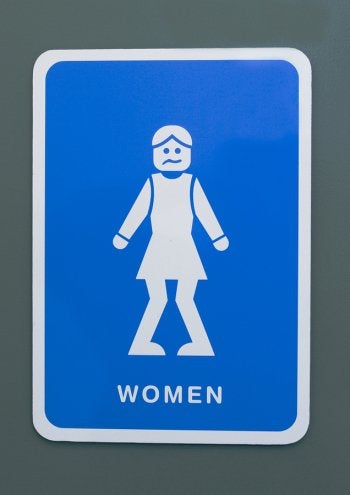-
Treatment Options for Women with Incontinence

Urinary incontinence can cause an enormous amount of anxiety for women, but if it is happening to you, you should know that you are not alone. Incontinence impacts the lives of millions of women of all ages in the U.S. Up to 80% of the 25 million people who live with urinary incontinence are women. The good news for women with incontinence is that you don’t have to suffer in silence. Multiple treatment options are available to control your symptoms and let you approach life with confidence again. Help starts with a visit to your urologist, who may recommend one of these treatments for your incontinence symptoms.
Behavioral Training
In some cases, incontinence symptoms can be overcome with behavioral training, such as bladder training. Bladder training involves scheduling visits to the bathroom and gradually increasing the time between visits, delaying urination for a set period of time when the urge strikes, and doing Kegel exercises to give you better control of the pelvic muscles that stop the flow of urine. Some women find that these exercises help them get adequate control of their symptoms without further treatment.
Medications
When behavioral training is not sufficient, your urologist may recommend medications. There are a number of different medications that can help with incontinence. The one your doctor selects for you depends on a number of different factors, including the type of incontinence you have. For instance, estrogen creams can help with stress incontinence, while Botox can be used to treat urge incontinence. Medications can be used alone or in conjunction with behavioral training.
Lifestyle Modifications
Alongside other treatments, your doctor may recommend some lifestyle changes that could help control your incontinence. Avoiding overconsumption of fluids, wearing a tampon when you jog or dance to put pressure on your urethra to reduce leaks, and avoiding alcohol and caffeine can all be helpful.
Don’t let incontinence impact your life for another day. At Urology Associates, PC, we can help you control your incontinence symptoms and get back to enjoying the activities you love. Make an appointment with a urologist in Tennessee today by calling (855) 901-1338.
-
How the Sling Helps Treat Incontinence
Incontinence is a common problem for women. Heavy lifting and childbirth can damage the pelvic muscles and reduce the ability to control urine flow. If your urologist says your incontinence is caused by pelvic floor muscle weakness, the sling could be a solution. Watch this video to learn more.
The sling is placed under the bladder to restore lost tightness and close the area between the urethra and the neck of the bladder. This closure reduces urinary leakage. Vaginal sling surgeries are quick procedures for many patients, who often leave the surgical center the same day of the procedure.
Sling surgery is just one option provided by Urology Associates, P.C, for incontinence issues. Make an appointment with a urologist today by calling (888) 329-7700 to learn about incontinence treatment or other concerns, such as UTI treatment.
-
What Causes Urinary Incontinence?
 If you’re experiencing a loss of bladder control, or urinary incontinence, make an appointment with your urologist in Nashville . This condition, which often causes embarrassment, is treatable. Your urologist can pinpoint the cause of your incontinence, and work with you to develop a treatment plan and resolve your symptoms.
If you’re experiencing a loss of bladder control, or urinary incontinence, make an appointment with your urologist in Nashville . This condition, which often causes embarrassment, is treatable. Your urologist can pinpoint the cause of your incontinence, and work with you to develop a treatment plan and resolve your symptoms. It’s important to recognize urinary incontinence as a symptom of an underlying problem, rather than a disease itself. By addressing the underlying issue, your urologist can treat your incontinence. Common causes include bladder and pelvic floor muscle weakness, nerve disorders, and vaginal prolapse. Birth defects, a UTI, and even constipation can also cause incontinence. Depending on the cause, your urologist can treat your incontinence with medications, surgery, or lifestyle changes.
Urinary incontinence is not a normal part of aging, and you do not have to live with it. Schedule a consultation at Urology Associates P.C. to get on the road to recovery. To make an appointment, call us at (888) 329-7700.
-
A Look at the Causes and Treatments of Urinary Incontinence
The loss of bladder control is referred to as urinary incontinence . The severity of this problem can vary widely. However, whether you experience occasional leakage or frequent accidents, it’s a good idea to consult a urologist. Although many people find bladder leakage to be an embarrassing problem, it’s also important to realize that it’s a common health issue that should be evaluated by a specialist.
 Temporary Causes
Temporary Causes Urinary incontinence isn’t always the result of an underlying medical problem. A urologist might ask you about your lifestyle because the consumption of alcohol, carbonated drinks, and caffeinated beverages can contribute to urinary incontinence. Certain medications, including muscle relaxants and sedatives, may also be the culprit of temporary incontinence.
Persistent Causes
If you experience persistent urinary incontinence, it may be due to an underlying medical condition such as a neurological disorder or an obstruction of the urinary tract. In men, prostate cancer or an enlarged prostate may lead to incontinence. Women may experience urinary incontinence because of pregnancy, childbirth, menopause, or a hysterectomy.
Behavioral Techniques
There are noninvasive treatment options for urinary incontinence . A urologist might recommend that you try behavioral techniques, for example. These include scheduled toilet trips, double voiding, and careful management of fluids and foods. Bladder training may help those who feel the frequent need to urinate.
Medications
A urologist may prescribe medications to help you control your symptoms. Some examples of medications that may be helpful include anticholinergics and mirabegron. Men may benefit from alpha blockers, while women might try topical estrogen.
Surgical Intervention
When lifestyle changes, behavioral techniques, and medications aren’t enough to manage urinary incontinence, you might consider surgical intervention. Your urologist can explain the types of procedures that may be helpful for you, which may include sling procedures, bladder neck suspension, and prolapse surgery.
Urology Associates, P.C. provides comprehensive urinary incontinence diagnosis and treatments at our state-of-the-art center for urology in Nashville . If you’re suffering from incontinence or another urologic condition, don’t delay seeking the help you need. A urologist at our facility can offer recommendations based on your unique needs and preferences.
Recent Posts
categories
- Uncategorized
- Bladder Cancer
- Women's Sexual Health
- MonaLisa Touch
- Urology
- Urologist
- Erectile Dysfunction
- Kidney Cancer
- Incontinence
- Prostate
- MonaLisa Touch Laser Treatment
- Kidney Stones
- Urinary Tract Infections
- Event
- Sexual Dysfunction
- Testicular Cancer
- Prostate Cancer
- Urology Surgery Center
- urinary incontinence
- vaginismus
- noncoital pain disorder
- Hypoactive Sexual Desire Disorder
- Infographic
- provenge
- Xofigo
- robotic surgery
- hormone replacement
- diabetes
- renal cell carcinoma
- pelvic pain
- hematuria
- sexual health
- chronic testicular pain
- premature ejaculation
- Men's Health Clinic
- Dr. Melvin Seard
- Interstitial Cystitis
- vasectomy
- overactive bladder
- vaginal atrophy
- nocturia
- bladder infections
- urethral strictures
- Acute Epididymitis
- low sex drive
- circumcision
- pelvic floor dysfunction
- Peyronie's Disease
- prostatitis
- female sexual dysfunction
- varicocele
- difficult urination
- low libido
- PSA levels
- male fertility
- penile prosthesis
- prostatic intraepithelial neoplasia
- male infertility
- estrogen levels
- nurse navigator
- stress urinary incontinence
- vaginal yeast infection
- elevated psa
- painful sex
- adult circumcision
- epididymitis
- OAB
- kidney infection
- penile cancer
- pelvic organ prolapse
- Vasectomy Reversal
- bone health
- cystectomies
- clinical trials
- bloody urine
- Advanced Therapeutic Center
- WISH MedSpa
- neurogenic bladder
- WISH Team
- prostate biopsies
- BPH
- fecal incontinence
- lithotripsy
- osteoporosis
- kidney cysts
